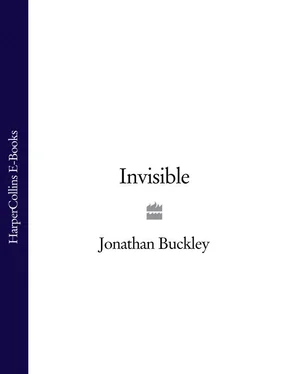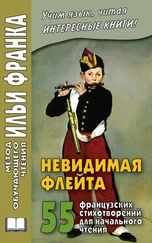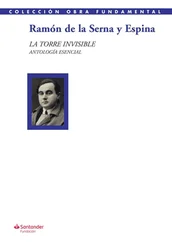In the bread bin there are three types of bread. She takes the biggest loaf and saws off two thick wedges. Under a dish in the fridge she finds a drooping Camembert, an overripe Stilton and something the colour of a block of urine. Behind the dish, wrapped in a coat of foil, there’s a roasted chicken, which she might have been told to leave alone, but she’s not sure. It’s the only edible thing she can see, so she tears a few strips off the breast and lays them between the unbuttered slices. On the work surface, between the oven and the rack of spices, a cookery book lies open at a recipe for Fillet of Beef with Red Wine, Anchovies, Garlic & Thyme. Two postcards inserted between other pages seem to mark the other courses on tonight’s menu: Pea, Mint & Avocado Salad, with Strawberries in Dark Syrup to finish. ‘Dear K & R,’ she reads, on the back of a picture of a colossal gold Buddha, ‘This is the life!! Our room is ENORMOUS and the people here are so lovely and friendly they make you feel like you're one of the family. Weather is glorious and the beach is to die for! John went diving this morning and has really caught the bug – says he’s going to do it every day. Too much like hard work if you ask me! London seems a million miles away…’ Mixed in her mouth, the chicken and bread have formed a stringy paste that tastes of nothing but saliva. She lifts the top slice off the sandwich and examines the strips of flesh. They remind her of dead mice in the biology lab.
She grabs the phone but puts it down before keying any numbers, because at the back of her mind there’s an incident involving her father, in a shop. She is walking behind him, carrying a wire basket with handles that are covered in red rubber that has split. He stops by a big freezer and opens the door, but he doesn’t take anything out for a long time, and then finally he holds out a big box of frozen fish fingers, for her to say yes or no. He rubbed her hair every time he put something into the basket. Holding the half-eaten sandwich in one hand, she stares at the floor, trying to remember more, but the sight of her lumpen feet prevents her from thinking. She throws the sandwich into the bin.
On the low oak table in the living room this month’s magazines are stacked in a block, with Vogue at the top. She scans the tapes on the shelves behind the television: the tedious rugby games and tedious Grand Prix races, the Indiana Jones collection, the Humphrey Bogart collection, the Woody Allen collection, Sense and Sensibility , Emma , Pride and Prejudice , none of them watched since the day they were bought. Her father’s flat, she recalls, felt more like an office than a place where someone lived. The carpet was too thin for a living room, and he had a desk by the window, with a computer on it, and a pile of letters. He brought her meal out on a tray. She ate it on her knees, watching a cartoon on the television. The radiator in the bathroom was dusty. When she went to the toilet she ran her finger down one of the indentations in the radiator, and her fingertip came away black. The bookshelf at which she is looking is filled with autobiographies: the life stories of film stars, TV personalities, rugby players, mountain climbers, politicians, racing drivers, criminals, soldiers, cricket players, businessmen, nobodies. There is not a smudge of dirt anywhere on the carpet. It is like a pond of cream, and it makes her feel sick to look at it.
In the bathroom mirror she looks at her face, a face in which she sees none of her mother’s features, except for the shape of the eyes, which are deeply set, like her mother’s, and quite wide apart, like hers, but darker. She looks into those eyes and they look without intent into hers. Discarding the shirt, she regards the protruberant collarbone, the scatter of moles below the neck, the heavy breasts, the swell of the belly. It is like looking through a window at somebody else. She turns her hands over, palms up, then back. The fingers do not taper like her mother’s and the knuckles are more bulbous. On her wrist hangs the bracelet that her father sent her. ‘Typical,’ her mother kept saying, appalled that he’d given his daughter something second-hand for Christmas. Cheap and ugly and thoughtless, her mother said it was – worse than the tokens he usually sent. But she knew right away that it wasn’t cheap, even if it was ugly. She kept it in a box under the bed, and at night she would sometimes take it from its case and examine the waves that ran round it, and the things shaped like seeds of corn, and the weird little boggle-eyed man with the boxer’s broken nose, wondering what had made her father buy it for her, where he had bought it, what its story was. One day, at school, she saw a similar thing in a history book. Perhaps it was after seeing the picture that she began to look at the bracelet carefully and see that it wasn’t ugly. And the fact that her mother despised the thing had become part of its attraction. She smiles at the half-naked girl in the mirror, remembering the evening she had worn it, at a dinner for that boozy old bastard Mr Girtin and his pointless wife. She was thinner then, and could jam the bracelet nearly up to her elbow, but when she passed a bowl to Mrs Girtin it slipped out of her sleeve and her mother saw it before she could shove it back. From the look her mother gave her anyone would have thought she’d let rip with a fart. Buttoning the shirt, she goes back into her parents’ bedroom. She sits on the bed, pummels a pillow on her lap, deposits the phone on the pillow, and dials.
Malcolm takes a call from reception, telling him that there’s a Stephanie Tindall for him on line two.
‘Hello?’ he says. ‘Stephanie?’ He hears a clumsiness in the pronunciation of her name, as though his mouth were recovering from an anaesthetic.
‘Hi,’ says his daughter.
‘My God,’ he responds, too theatrically. ‘It’s you.’
‘Yeah,’ she says coolly, and pauses, as if he had been the one who had phoned and she is waiting to hear what he wants.
‘This is – I’m –’
‘Surprised?’
‘You could say that.’
‘Yes. You sound surprised,’ she confirms. There is a shade of an accent in her voice, ‘yis’ rather than ‘yes’.
‘Surprised and very pleased,’ he says. He stretches out a foot to push the door shut. ‘I thought I’d hear from your mother first.’
Stephanie gives a small grunt, perhaps of amusement. ‘Well, it’s me.’
‘After all this time.’
‘All this time,’ she copies.
‘So, how are you?’
‘I’m OK. How are you?’
‘I’m fine.’
‘Good.’
Having waited for her to say more, he prompts: ‘You didn’t sound altogether OK in your letter.’
‘I’m OK,’ she repeats expressionlessly, and again does not continue.
He makes a non-committal sound, hoping that she will speak. ‘You’re not, are you? Not really,’ he says at last.
She sighs loudly, then tells him: ‘We don’t get on. You spoke to her. You must have got the picture.’
‘Well, no. I don’t understand the situation. If the problem –’
‘The problem is that she’s who she is and he’s who he is and I’m who I am.’
‘Robert.’
‘The dentist. Yes.’
‘I wouldn’t know. I’ve never met the man.’
‘What, never?’
‘Not ever.’
‘Count your blessings. I’m telling you. He’s dull. Dull dull dull.’
‘Dull isn’t so bad. One can live with dull. I don’t see why –’ ‘He’s worse than dull.
He’s dullness to the power of ten. Dullness de luxe. And she’s awful. They’re driving me mental.’
‘She’s not awful. Stephanie. She can be difficult. I know she can be difficult. I can be difficult. We all can be. But I don’t think she’s –’
Читать дальше











